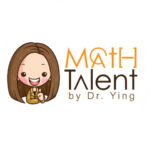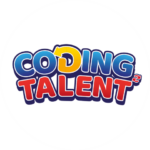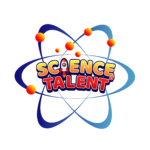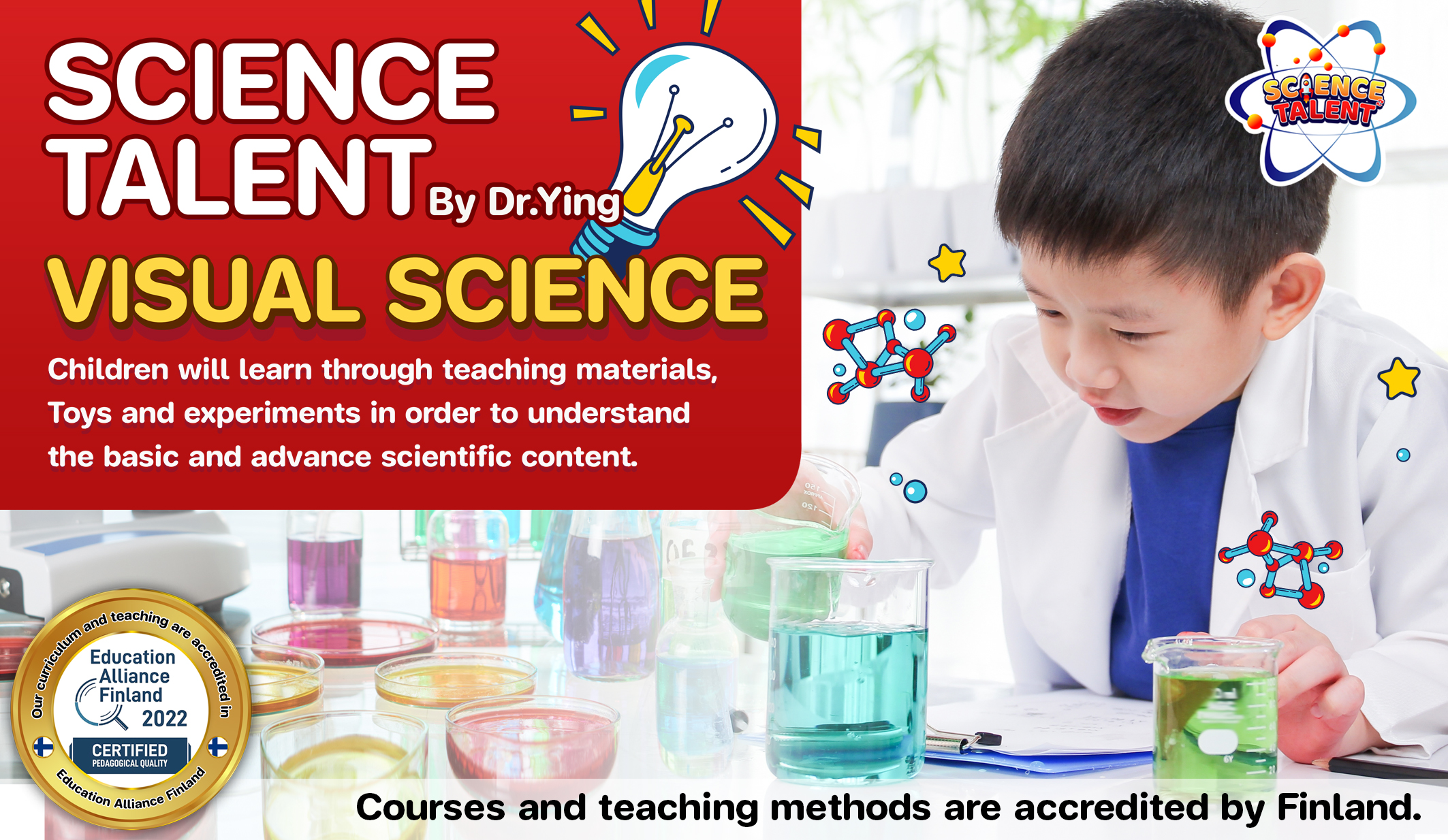
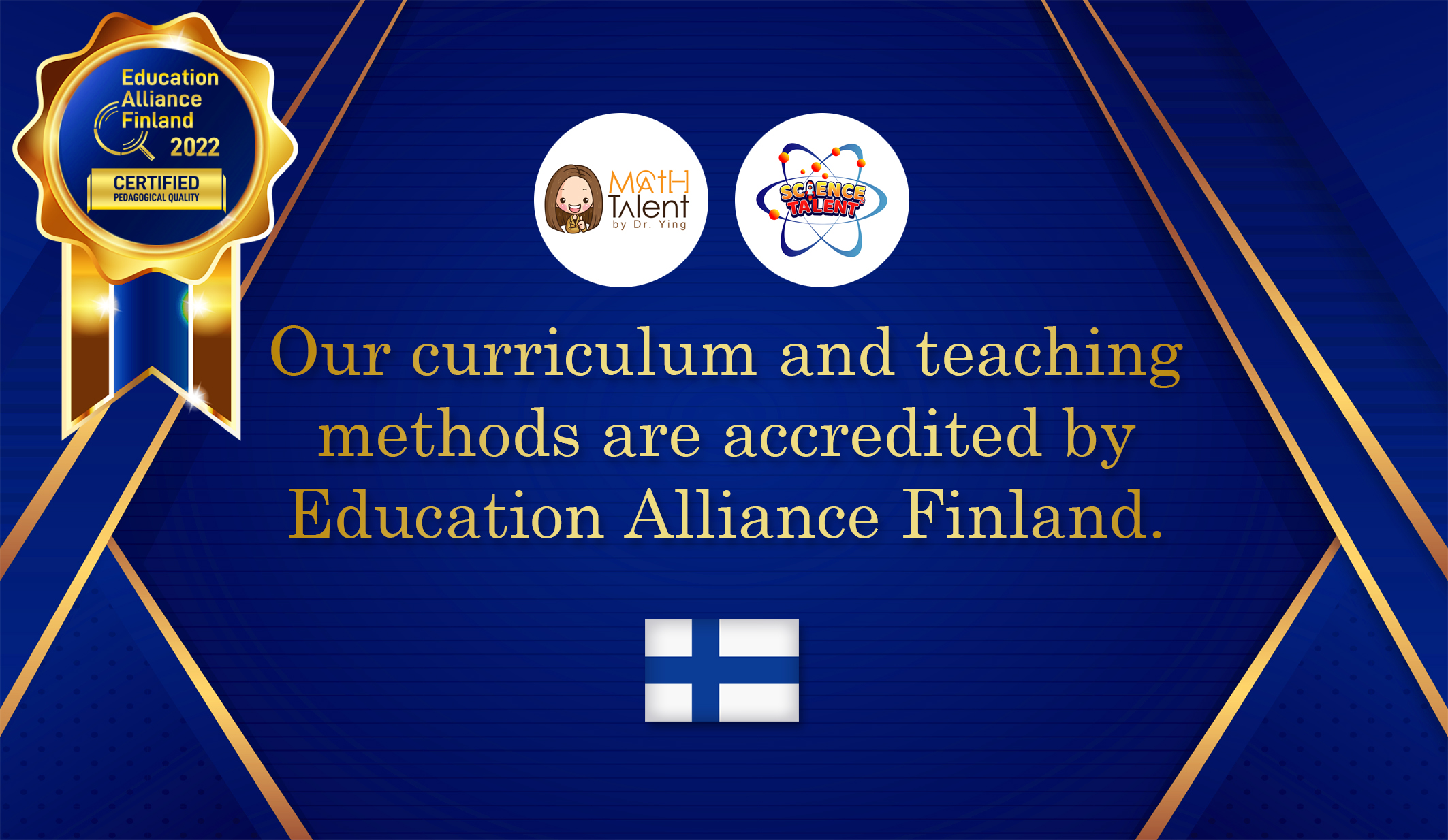
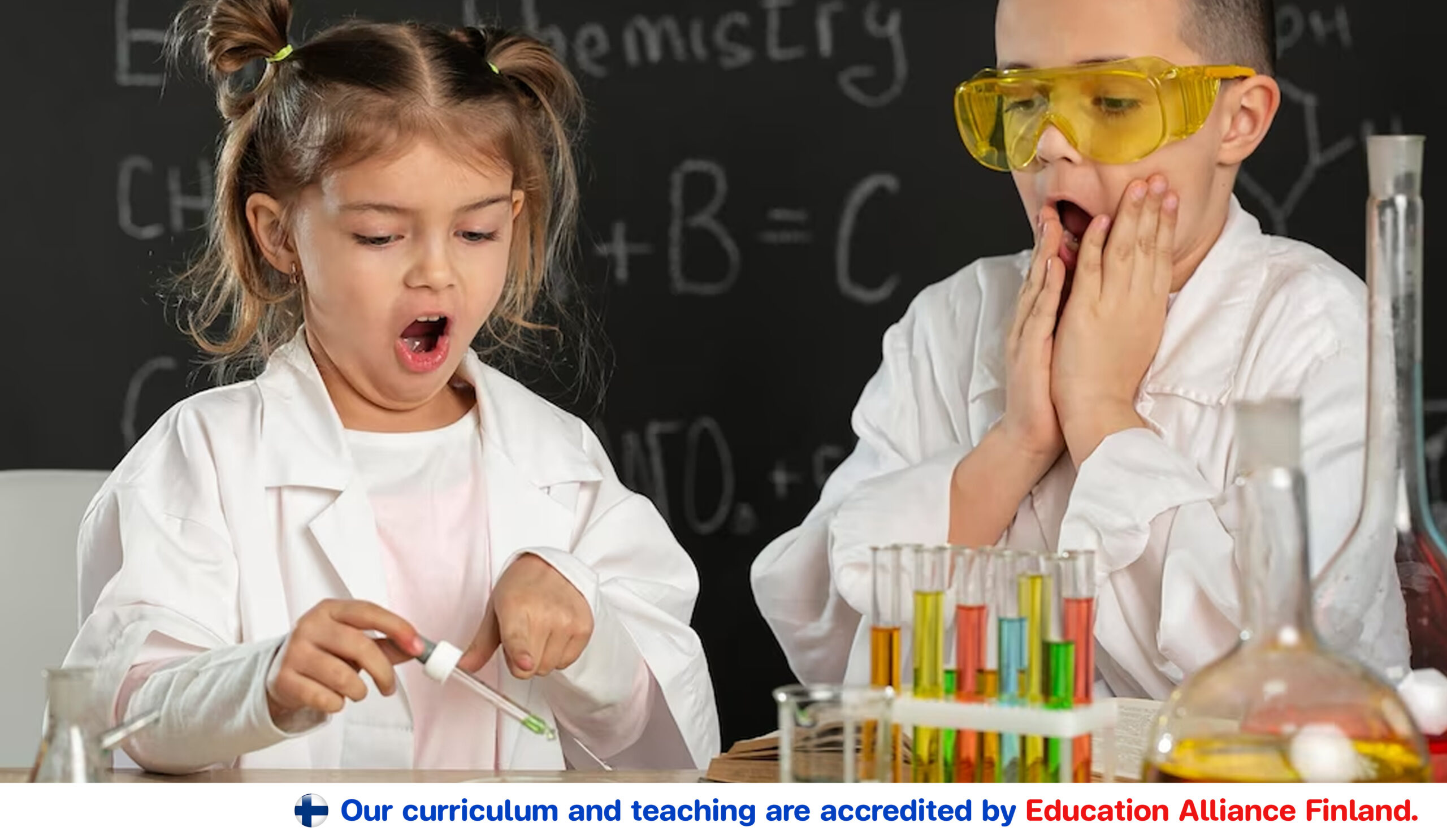
💡VISUAL SCIENCE💡
Science Talent by Dr.Ying
Visual Science is a teaching approach that enables students to learn science through tangible,
hands-on learning tools, including games, activities, and experiments directly related to each topic.
This method allows students to integrate and apply knowledge across different areas of science, building
a deeper and more connected understanding.
By physically interacting with materials rather than just listening or speaking, students gain a clearer
grasp of scientific principles, their foundations, and real-world applications.
Our approach is learner-centered and encourages active participation, making science enjoyable, engaging, and deeply meaningful.
Students not only understand the content—they also enjoy the learning process so much that they often don’t want the class to end.
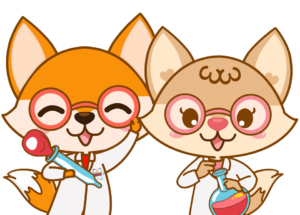
Scientific Process Skills for Young Learners Learning scientific process skills—such as communication
skills including observation, description, classification, sequencing, comparison, drawing conclusions, interpreting data,
performing actions, exploring, and investigating through the five senses—helps children become more aware
of their own bodies and understand how to protect themselves from illnesses and physical harm.
These skills also foster a broader understanding of the world around them, including plants, animals, and the environment.
Children learn to recognize the benefits and potential dangers of everyday materials and objects,
understand natural and astronomical phenomena, and develop logical reasoning skills.
This foundation encourages analytical thinking and equips them with the ability
to solve problems effectively and responsibly.
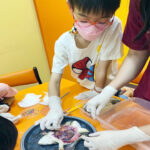
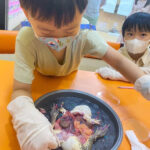
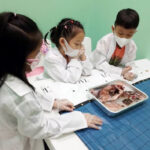
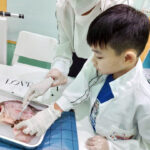
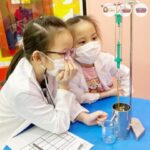

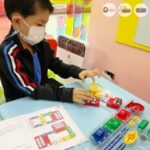
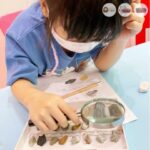

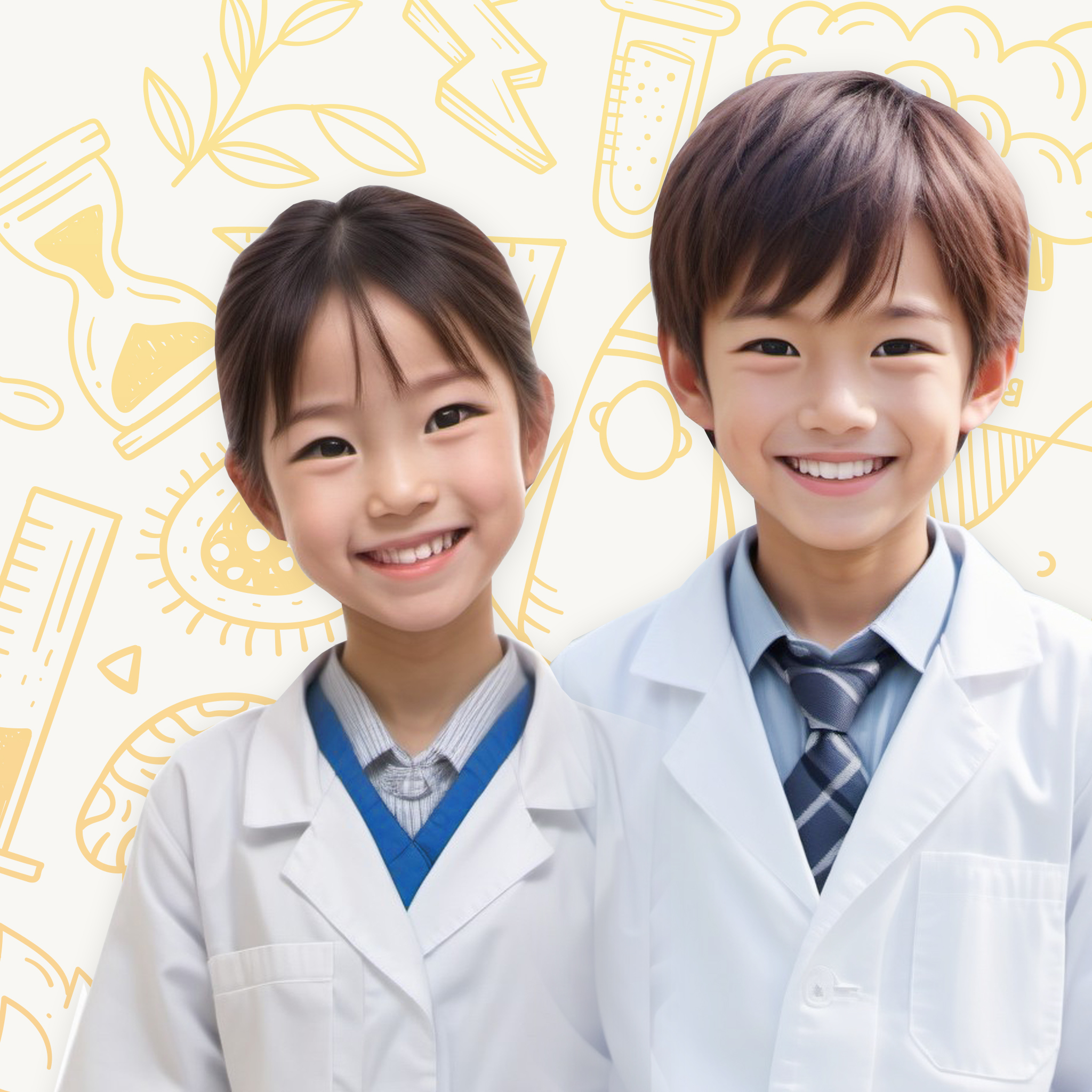



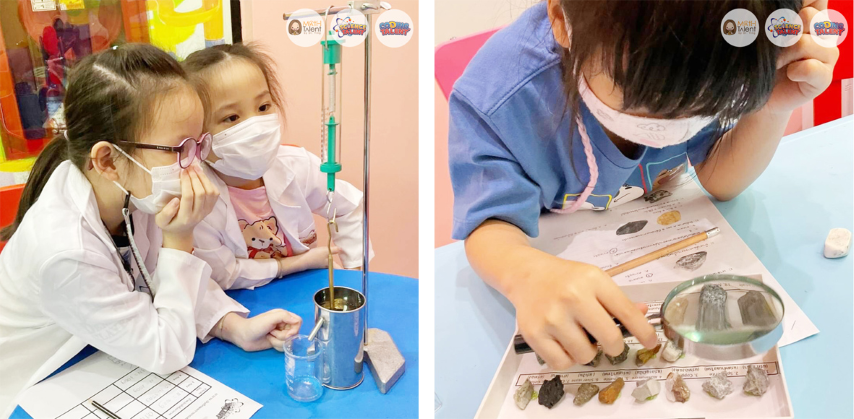
Learning Programs 🔬
Our curriculum and teaching methodology are officially accredited by Finland — renowned for having one of the best education systems in the world.
We offer two learning programs:
1. For students in the Thai Curriculum and English Program:
A bilingual program (English–Thai) designed to align with the standards set by the Ministry of Education in Thailand.
2. For students in International Programs:
An English-medium curriculum aligned with educational standards from the United Kingdom and the United States.
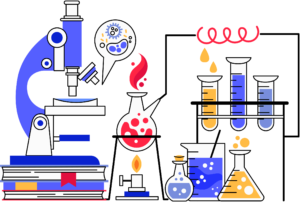
Visual Science Program
At Science Talent by Dr. Ying, we have researched and developed a specialized curriculum tailored for students in international, bilingual, and Thai programs.
The curriculum is synthesized from the core standards of the Ministry of Education and leading schools, resulting in a flexible and personalized learning model that suits the individual needs of each student.
After an initial assessment, students are grouped according to their prior knowledge, curriculum background, and learning behavior. Each class is limited to a maximum of four students to ensure personalized attention and effective learning.
To begin, teachers should first be informed of the student’s current school curriculum.
International Curriculum
Our international program is divided into three systems:
1. 
Instruction and materials follow the educational standards of the United States.
2. 
Instruction and materials are based on the national curriculum of the United Kingdom.
3. 
Instruction and materials are aligned with Singapore’s national education standards.
Bilingual Curriculum
This includes the following program types:
- English Programme (EP)
- Mini English Programme (MEP)
- Intensive English Program (IEP)
(Thai Program)
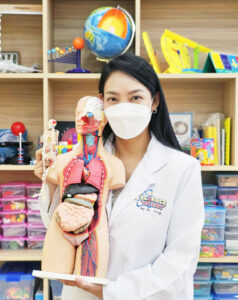
Learning System🔬
Our institute conducts research and develops curricula tailored for international, bilingual, and Thai program students. By synthesizing standards from the Ministry of Education and various schools, we create a learning model that suits each student individually.
After assessing the students’ initial knowledge, we group them according to their proficiency, curriculum needs, and learning behaviors. Each class is limited to a maximum of 4 students to ensure personalized attention.
This system is implemented from Kindergarten 1 through Grade 9.
🔬Frequently Asked Questions (FAQ) Visual Science
Q: What is the Visual Science curriculum like?
A: Visual Science uses a hands-on, visual-based teaching approach. Children engage with real objects, games, and materials to explore scientific concepts. This physical interaction promotes deeper understanding than passive listening or reading. The program is learner-centered and encourages active participation, helping students grasp scientific principles with joy, curiosity, and lasting enthusiasm—they often don’t want the class to end!
Q: How is Visual Science taught?
A: Our method emphasizes understanding the origins of scientific concepts. Students participate in every step of real experiments, using tangible materials—not just theory—under the close supervision of experienced instructors. The hands-on process helps reinforce comprehension in a natural and memorable way.
Q: How does Visual Science help students improve?
A: Our curriculum helps students understand the reasoning behind scientific content rather than relying on memorization. Since science can be content-heavy, our approach supports better retention and comprehension. Some students show noticeable improvement after just one course, depending on the topic. Our teachers are confident that with consistent attendance, students will show significant progress.
Q: Can Visual Science be used alongside school science classes?
A: Absolutely. Our curriculum is developed based on a synthesis of standards outlined by the Ministry of Education and school-based practices, making it a perfect complement to what students learn in school.
Q: Is it better to study Visual Science individually or in a group?
A: One-on-one lessons help students focus more deeply on their learning. Group sessions, on the other hand, offer academic learning as well as opportunities to develop social skills through peer interaction. Both formats are effective depending on the learner’s needs.
Q: Is Visual Science taught directly by Dr. Ying?
A: Due to the high demand from students and parents across the country, the institute has expanded to multiple branches. Dr. Ying has developed a comprehensive training program to ensure that every instructor meets our high-quality standards. As a result, every student receives instruction equivalent to learning directly from Dr. Ying.
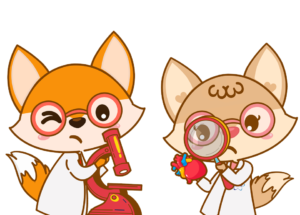
Science Teaching
Science Talent Video 1
Science Talent Video 2
Science Talent Video 3
Science Talent Video 4
Science Talent Video 5
Science Talent Video 6
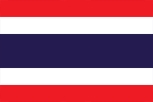 ไทย
ไทย  EN
EN 